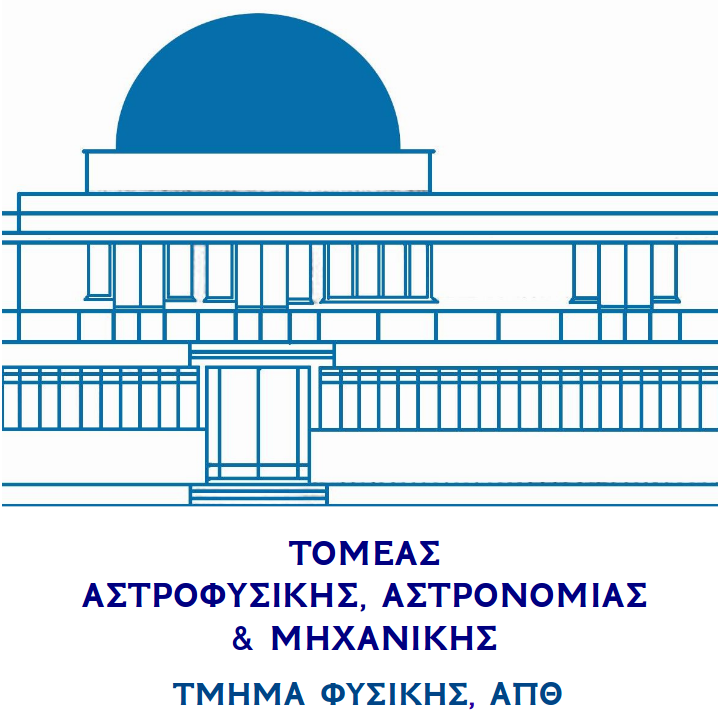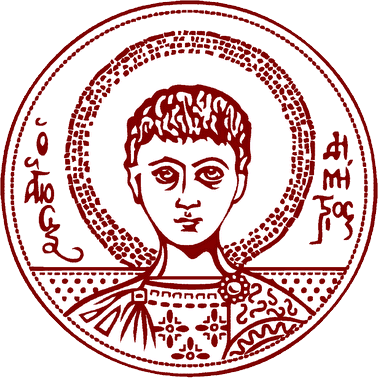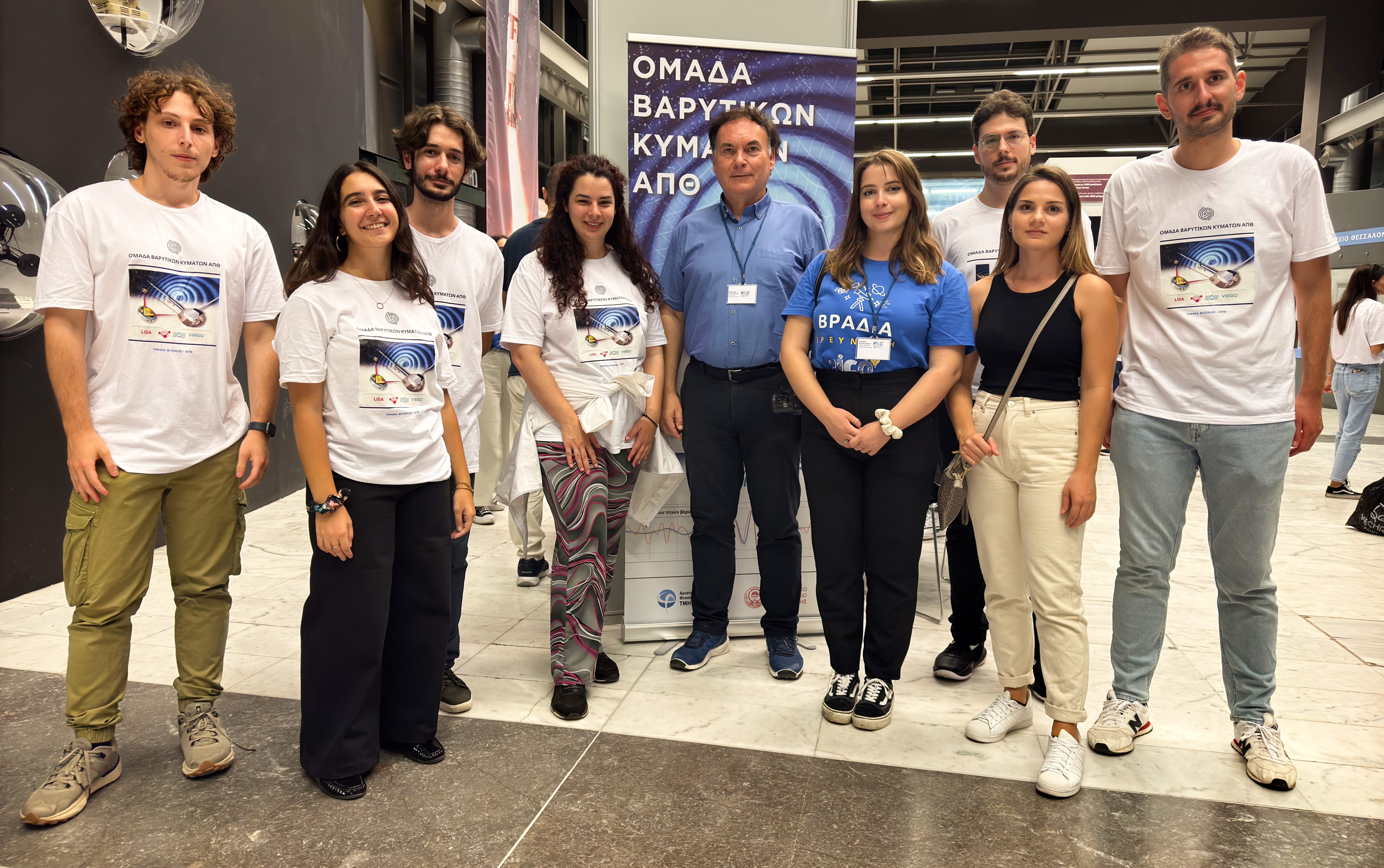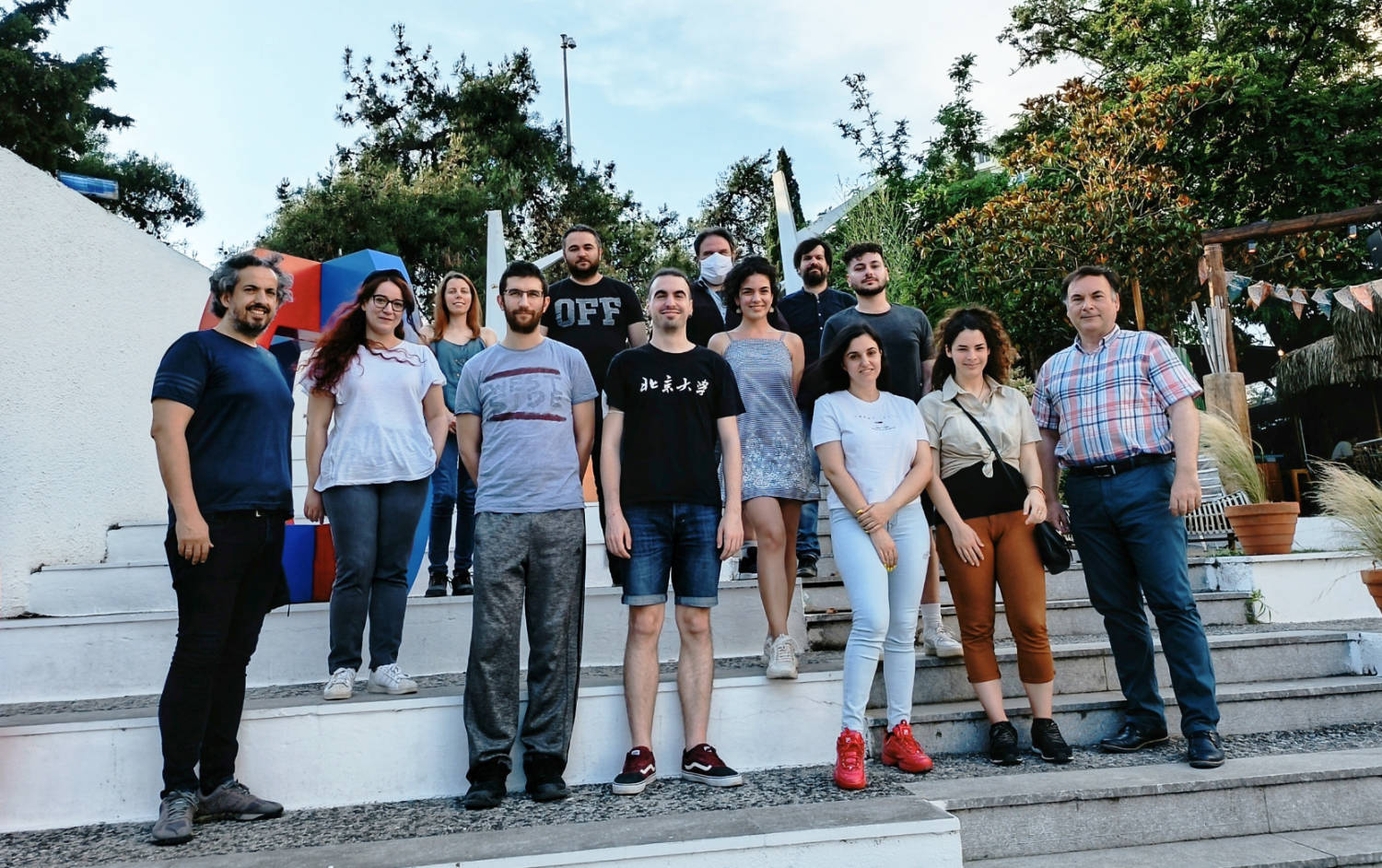
Section of
ASTROPHYSICS,
ASTRONOMY
& MECHANICS
Aristotle University
of Thessaloniki
Physics Department




Nikolaos Stergioulas |
|
| Position: | Professor |
|---|---|
| Department: | Department of Physics |
| Phone: | +30-2310998233 |
| email: | niksterg (at) auth.gr |
| Personal Page | http://www.astro.auth.gr/~niksterg/ |
Full CV Research Books Teaching Outreach ORCID SCOPUS ResearchGate
Publications M.Sc. Theses B.Sc. Theses Gravitational Waves Group
Short Biography
Nick Stergioulas is known for his contributions to the study of the equilibrium and stability of rotating relativistic stars, of relativistic accretion disks and of strongly-magnetized neutron stars (magnetars). He received his Ph.D. from the University of Wisconsin-Milwaukee, under the supervision of John L. Friedman, in 1996. He was a post-doctoral researcher at the Albert-Einstein-Institute, Potsdam (MPA for Gravitational Physics, 1998-1999) before joining the Department of Physics at the Aristotle University of Thessaloniki as a faculty member.
He has more than 230 publications, out of which more than 140 refereed publications. His research topics include: Gravitational-wave astronomy; Applications of Deep Neural Networks, Compact stars as sources of gravitational waves; Equilibrium and instabilities of rotating relativistic stars; Nonlinear oscillations of relativistic stars; MHD oscillations in relativistic models of magnetized neutron stars; Numerical relativity; Interaction of gravitational waves with plasma; and Relativistic accretion disks. His publications have received a total of more than 12,500 citations with an h-index of 56.
He is the author of a highly cited review article in Living Reviews in Relativity and co-author of a new book, entitled “Rotating Relativistic Stars”, in the highly-acclaimed series Cambridge Monographs on Mathematical Physics. He has presented more than 35 invited talks at international conferences and he gave a series of invited lectures at 9 international summer or winter schools for advanced graduate students and post-docs on relativistic astrophysics and numerical relativity. He was P.I. in 13 international or bilateral research grants (including three Marie-Curie post-doctoral fellowships, an ESA Prodex grant, and coordinator of a Horizon grant) and participated in more than 14 other research grants.
He is the leader of the VIRGO group and the LISA group at AUTh, and he is a member of the Einstein Telescope Collaboration. He was representative of Greece in the management committee of the ESF COST projects 1. "Exploring Fundamental Physics with Compact Stars", 2. "PHAROS: The Multimessenger Physics and Astrophysics of Neutron Stars", 3. "Quantum Gravity Phenomenology in the Multi-Messenger Approach". He was also a substitute member of the management committee of the ESF COST project "G2Net: A Network for Gravitational Waves, Geophysics and Machine Learning". He is participating in the Cosmic Explorer Consortium, the THESEUS proposal for a new ESA gamma/X-ray observatory, and the TVLBAI study.
He has 25 years of experience in supervising and training young researchers, including several international post-doctoral researchers, several Ph.D. students, and a large number of M.Sc. and B.Sc. students. At the Aristotle University of Thessaloniki, Nick Stergioulas is currently teaching "Astronomy and Astrophysics", "General Relativity", "Numerical Analysis", "Astrophysics", and part of "Programming Tools", "Radioastronomy" as well as part of "Advanced General Relativity" at the MSc level. He is the author of the public domain code RNS for constructing equilibrium models of rotating relativistic stars, which has been used extensively by the community in the last 25 years. His group has published the AresGW code, using deep learning to detect new gravitational wave candidate events.
Nick Stergioulas served two terms as elected President of the Hellenic Society for Relativity, Gravitation and Cosmology (2018-2022), and he also served as the Secretary (2014-2016). He served as an elected member on the governing council of the Hellenic Astronomical Society (2008-2010 and 2016-2018) and on the governing council of the Virgo-Ego Scientific Forum (VESF) (two terms), which supports the VIRGO gravitational-wave detector.
Currently, he is an elected member of the Board of the Gravitational Physics Division of the European Physical Society and a Fellow of the European Coalition for AI in Fundamental Physics (EuCAIF).
He is the current Director of the Laboratory of Astronomy at the Department of Physics, Aristotle University of Thessaloniki.
He served as an associate editor for the journal "General Relativity and Gravitation" (Springer).
Gravitational Waves Group @ Aristotle University of Thessaloniki

